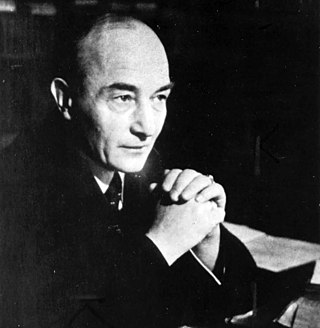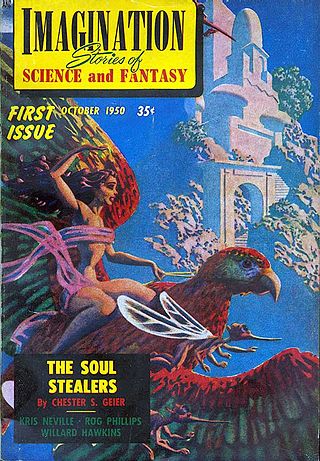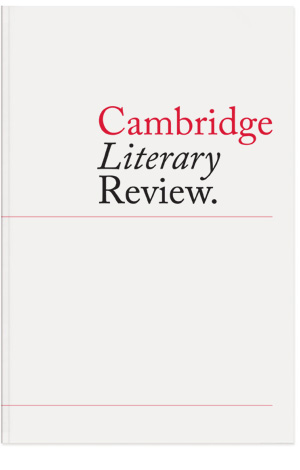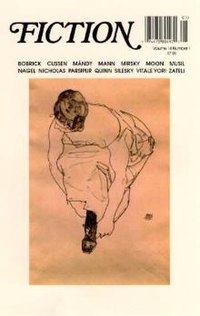
Robert Musil was an Austrian philosophical writer. His unfinished novel, The Man Without Qualities, is generally considered to be one of the most important and influential modernist novels.

Donald Barthelme Jr. was an American short story writer and novelist known for his playful, postmodernist style of short fiction. Barthelme also worked as a newspaper reporter for the Houston Post, was managing editor of Location magazine, director of the Contemporary Arts Museum in Houston (1961–1962), co-founder of Fiction, and a professor at various universities. He also was one of the original founders of the University of Houston Creative Writing Program.

The Paris Review is a quarterly English-language literary magazine established in Paris in 1953 by Harold L. Humes, Peter Matthiessen, and George Plimpton. In its first five years, The Paris Review published works by Jack Kerouac, Philip Larkin, V. S. Naipaul, Philip Roth, Terry Southern, Adrienne Rich, Italo Calvino, Samuel Beckett, Nadine Gordimer, Jean Genet, and Robert Bly.
Kmart realism, also termed "low-rent tragedies", is a form of minimalist literature found in American short fiction that became popular in the 1980s.

Steven Barthelme is the author of numerous short stories and essays.

The Best American Short Stories is a yearly anthology that's part of The Best American Series published by Houghton Mifflin Harcourt. Since 1915, the BASS has anthologized more than 2,000 short stories, including works by some of the most famous writers in contemporary American literature. Along with the O. Henry Awards, Best American Short Stories is one of the two "best-known annual anthologies of short fiction."

Little, Brown and Company is an American publishing company founded in 1837 by Charles Coffin Little and James Brown in Boston. For close to two centuries, it has published fiction and nonfiction by American authors. Early lists featured Emily Dickinson's poetry and Bartlett's Familiar Quotations. Since 2006, Little, Brown and Company is a division of the Hachette Book Group.

Lawrence F. McCaffery Jr. is an American literary critic, editor, and retired professor of English and comparative literature at San Diego State University. His work and teaching focuses on postmodern literature, contemporary fiction, and Bruce Springsteen. He also played a role in helping to establish science fiction as a major literary genre.
Mark Jay Mirsky is an American writer and professor of English at City College of New York.

Boston Review is an American quarterly political and literary magazine. It publishes political, social, and historical analysis, literary and cultural criticism, book reviews, fiction, and poetry, both online and in print. Its signature form is a "forum", featuring a lead essay and several responses. Boston Review also publishes an imprint of books with MIT Press.

Imagination was an American fantasy and science fiction magazine first published in October 1950 by Raymond Palmer's Clark Publishing Company. The magazine was sold almost immediately to Greenleaf Publishing Company, owned by William Hamling, who published and edited it from the third issue, February 1951, for the rest of the magazine's life. Hamling launched a sister magazine, Imaginative Tales, in 1954; both ceased publication at the end of 1958 in the aftermath of major changes in US magazine distribution due to the liquidation of American News Company.
Fredrick Barthelme is an American novelist and short story writer of minimalist fiction. He is the director of the Center For Writers at The University of Southern Mississippi and editor of the literary journal Mississippi Review. He is currently the editor of New World Writing
Gulf Coast: A Journal of Literature and Fine Arts is a literary magazine from Houston, Texas. Founded in 1986 by Donald Barthelme and Phillip Lopate, Gulf Coast was envisioned as an intersection between the literary and visual arts communities. As a result, Gulf Coast has partnered with the University of Houston's Creative Writing Program, the Museum of Fine Arts, Houston, and the Menil Collection to showcase some of the most important literary and artistic talents in the United States. Faculty editors past and present include Mark Doty (1999–2005), Claudia Rankine, (2006) and Nick Flynn (2007–present). The magazine publishes poetry, fiction, and creative nonfiction.
Chicago Review is a student-run literary magazine founded in 1946 and published quarterly in the Humanities Division at the University of Chicago. The magazine features contemporary poetry, fiction, and criticism, often publishing works in translation and special features in double issues.

The Cambridge Literary Review (CLR) is a literary magazine published on an occasional basis. It is edited by Lydia Wilson, Rosie Šnajdr, Jocelyn Betts and Paige Smeaton and is run from Trinity Hall college at the University of Cambridge in England. It was founded in 2009 by Boris Jardine and Lydia Wilson with assistance from the University's 800th anniversary fund. It publishes poetry, short fiction and criticism, and although its commitment to experimental and often difficult works is influenced by the 'Cambridge School' of poetry it has included contributions by writers from around the world and in many languages. It has received notice in The Times Literary Supplement.
Glass Mountain is an undergraduate literary magazine at the University of Houston that was established in 2006. The title is an allusion to a short story with the same title by Donald Barthelme. The magazine publishes poetry, fiction, non-fiction, reviews, literary essays, and art written by undergraduates. Each issue also includes interviews with notable literary figures, including Mat Johnson, Mark Doty, Nick Flynn, Tony Hoagland, and others. The publication is listed in the Council of Literary Magazines and Presses and launched its first national issue in 2011. In 2013, the journal was awarded the Director's Prize for content by the Association of Writers & Writing Programs.
The Review of Contemporary Fiction is a tri-quarterly journal published by Dalkey Archive Press. It features a variety of fiction, reviews and critical essays, with emph on literature that has an experimental, avant-garde or subversive bent. Founded in 1980 by the publisher John O'Brien, the Review of Contemporary Fiction originally focused upon American and British writers who had been overlooked by the critical establishment, and in this manner the Review succeeded in bringing new critical attention to writers such as William Gaddis, Gilbert Sorrentino, Paul Metcalf, Nicholas Mosley, Donald Barthelme, and many others. In 1984, in order to begin reprinting some of these authors, John O'Brien founded Dalkey Archive Press.

"Good News from the Vatican" is a 1971 science fiction short story by American author Robert Silverberg, featuring the election of a robot to the position of Pope of the Church of Rome. It won that year's Nebula Award for Best Short Story.
American Review was a literary journal published from 1967 to 1977 under editor Ted Solotaroff. Though it only published for ten years, it was the longest running paperback literary periodical at the time, and was influential for the large amount of work it published from notable authors.

Snow White is a post-modernist novel by author Donald Barthelme published in 1967 by Atheneum Books. The book inverts the fairy tale of the same name by highlighting the form by discussing the different expectations and compromises the characters make to survive in their world. This is done through Barthelme's fragmentary rhetoric and discourse, by shifting perspectives from the seven "dwarves" or Snow White herself, as well as the wicked step-mother, "Jane". It was Barthelme's first novel, published seven years after he started having his short stories published in literary magazines and publications such as The New Yorker.












